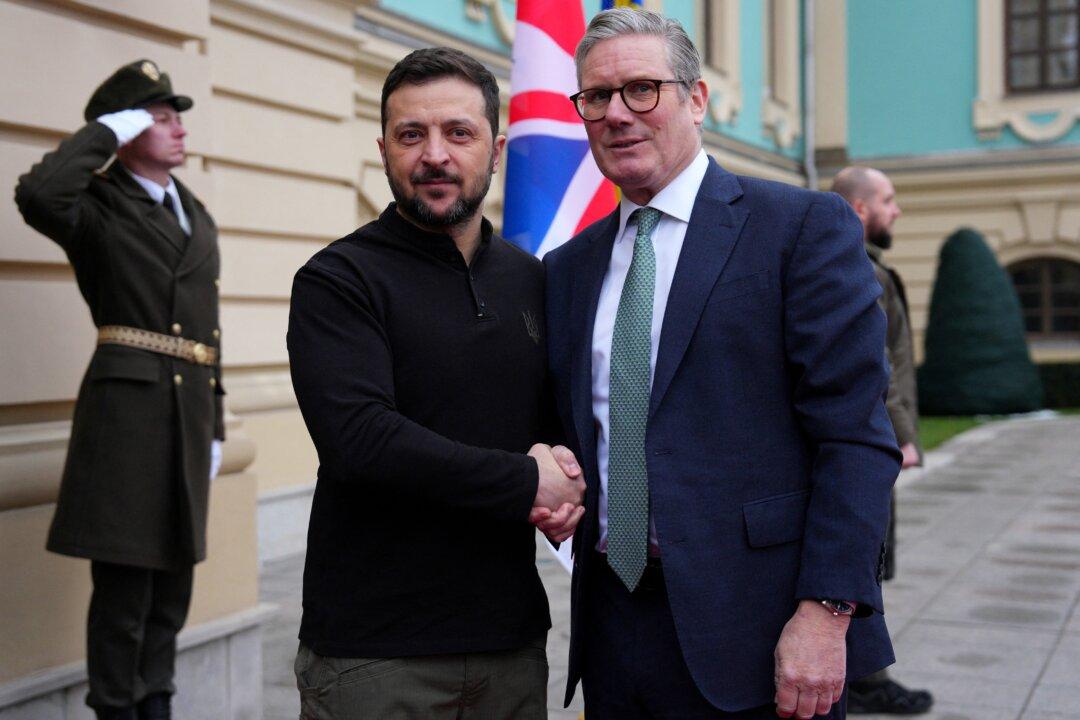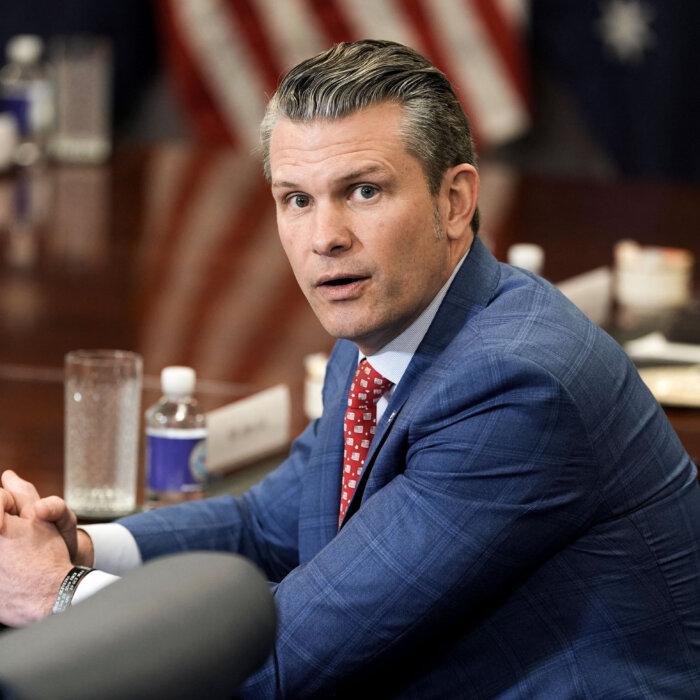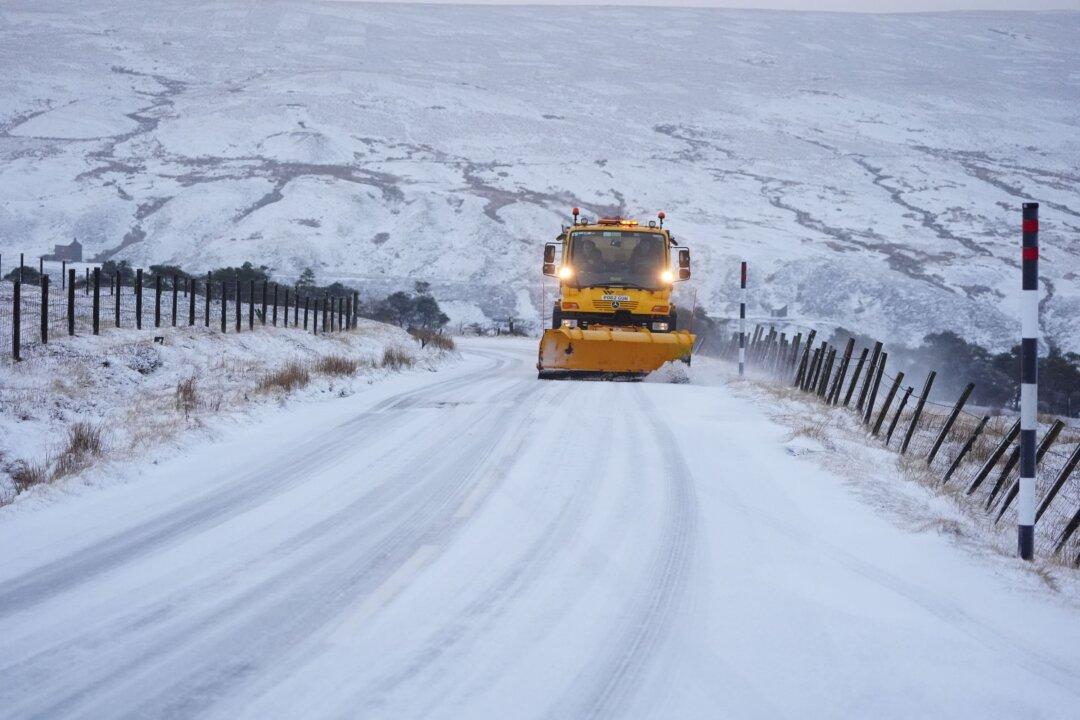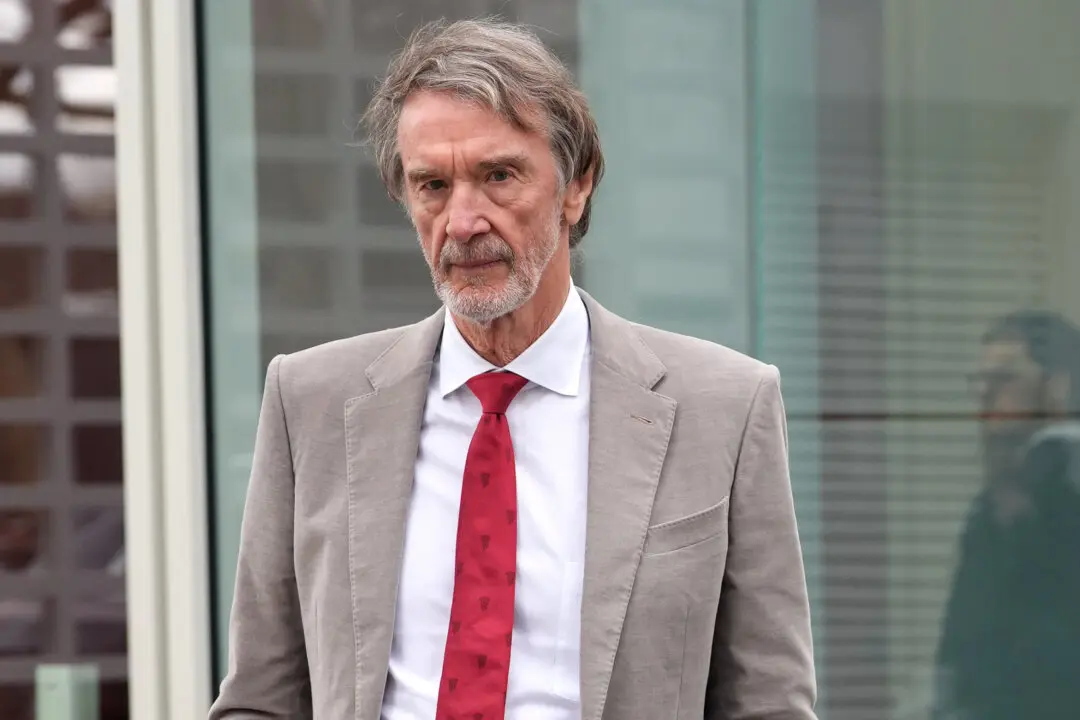A former army chief warned that the UK lacks forces and equipment as Prime Minister Sir Keir Starmer confirmed he was willing put a peacekeeping force into Ukraine if there is a deal to end the war with Russia.
Lord Richard Dannatt said Starmer was doing the “right thing” but warned it would come at a “considerable cost” and said Britain does not have the forces or equipment “to put a large force on to the ground for an extended period of time.”
The prime minister is joining European leaders for emergency talks in Paris as they scramble for a strategy in response to U.S. President Donald Trump’s push for a deal with Russian President Vladimir Putin and fears the United States will reduce its defence commitments in the continent.
Starmer said the crisis was a “once in a generation moment” and an “existential” question for Europe.
Writing in The Daily Telegraph, the prime minister said the UK was “ready to play a leading role” in Ukraine’s defence and security, including the commitment of £3 billion a year until 2030.
But he said that along with military aid to Ukraine “it also means being ready and willing to contribute to security guarantees to Ukraine by putting our own troops on the ground if necessary.”
“I do not say that lightly. I feel very deeply the responsibility that comes with potentially putting British servicemen and women in harm’s way,” Starmer said.
“But any role in helping to guarantee Ukraine’s security is helping to guarantee the security of our continent, and the security of this country.
“The end of this war, when it comes, cannot merely become a temporary pause before Putin attacks again.”
Starmer has previously only hinted that British troops could be involved in safeguarding Ukraine after a cease-fire, but in an explicit message aimed at encouraging both European allies and Trump to commit to deterring a future attack he confirmed he could deploy the military.
Lord Dannatt, who was chief of the general staff between 2006 and 2009, told “BBC Breakfast”: “My reaction is the prime minister is doing the right thing. But, of course, doing the right thing comes at a price.
“If the prime minister is serious about wanting to deploy British troops, put boots on the ground in Ukraine as part of a peacekeeping force, he’s got to realise that’s going to come at a considerable cost.”
Lord Dannatt later went on: “Frankly, we haven’t got the numbers and we haven’t got the equipment to put a large force onto the ground for an extended period of time at the present moment.
“Now, if Keir Starmer wants to do that, that’s fine. The British Army will always stand up to the plate, but here we go again. We’ve got to have the right number of people with the right equipment and the right training, and start to fund that now.”

Health Secretary Wes Streeting conceded that the armed forces have been “run down” over the last decade and said it was “certainly not for me to speculate this morning” on how many troops could be needed for a peacekeeping force.
Streeting reiterated the commitment to reaching 2.5 percent of GDP spending on defence and did not say whether the government could go higher.
The prime minister, who is due to visit Trump in Washington later this month, said in his article that European nations must “step up” but that U.S. support will “remain critical” because “only the US can deter Putin from attacking again.”
Representatives of the U.S. administration and Russian counterparts are expected to meet in Saudi Arabia for talks following Trump’s direct phone conversation with Putin on Wednesday.
But Ukrainian officials are not expected to be at the table at this stage, while other European leaders might not be involved in the process at all.
Starmer said: “We must be clear that peace cannot come at any cost. Ukraine must be at the table in these negotiations, because anything less would accept Putin’s position that Ukraine is not a real nation.”
He warned of a repeat of the chaos that followed the withdrawal of U.S. troops from Afghanistan under former President Joe Biden, which followed a deal struck with the Taliban under Trump.
“We cannot have another situation like Afghanistan, where the US negotiated directly with the Taliban and cut out the Afghan government,” Starmer said.
“I feel sure that President Trump will want to avoid this too.”
He restated his position that Ukraine’s path to NATO membership is “irreversible” and suggested squeezing Russia’s economy by going further on the oil price cap, targeting the shadow fleet used to transport exports, sanctioning of oil giants, and taking action against banks enabling the evasion of sanctions.
The U.S. stance on Ukraine and demands for Europe to do more to pay for and provide its own security increased pressure for greater defence spending across the continent.
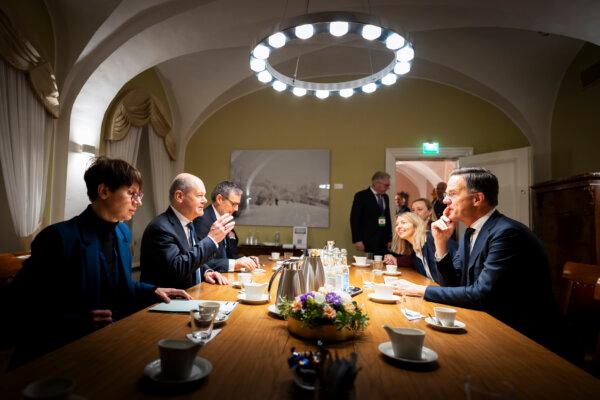
The meeting in Paris called by French President Emmanuel Macron will see Starmer joined by leaders from Germany, Italy, Poland, Spain, the Netherlands, and Denmark along with the presidents of the European Council and European Commission and the secretary general of NATO.
Starmer said: “I am heading to Paris today with a very clear message for our European friends.
“We have got to show we are truly serious about our own defence and bearing our own burden.”
But domestically, Starmer is unlikely to go beyond his commitment to set out a plan to increase defence spending to a 2.5 percent share of the economy, despite calls from Trump to hike spending to 5 percent and NATO chief Mark Rutte’s suggestion allies should spend more than 3 percent.
The UK currently spends around 2.3 percent of gross national product on defence.
Speaking on Sunday, Trump said, “We’re moving along, we’re trying to get a peace with Russia and Ukraine and we’re working very hard on it,” and he promised that Ukraine’s President Volodymyr Zelenskyy “will be involved.”
Shadow Home Office minister Alicia Kearns told Sky News she is “quite cautious” about the prospect of sending peacekeeping forces to Ukraine.
Asked whether she supports the government’s stance, Kearns said, “I’m quite cautious, because we’re not in a place in which we understand the terms or the conditions or the numbers or the way in which we’d be deploying our people, and we should always make sure that we are making decisions based on as much information as possible.”
She said it was not yet time to make those commitments while fighting is still going on in Ukraine.
“I just think we’re not in that place as yet—things are going to change over the next few hours, let alone the next few days, weeks, and months.”
She later added, “I don’t like to deal in hypotheticals when it comes to putting our men and women on the ground fighting for people.”
